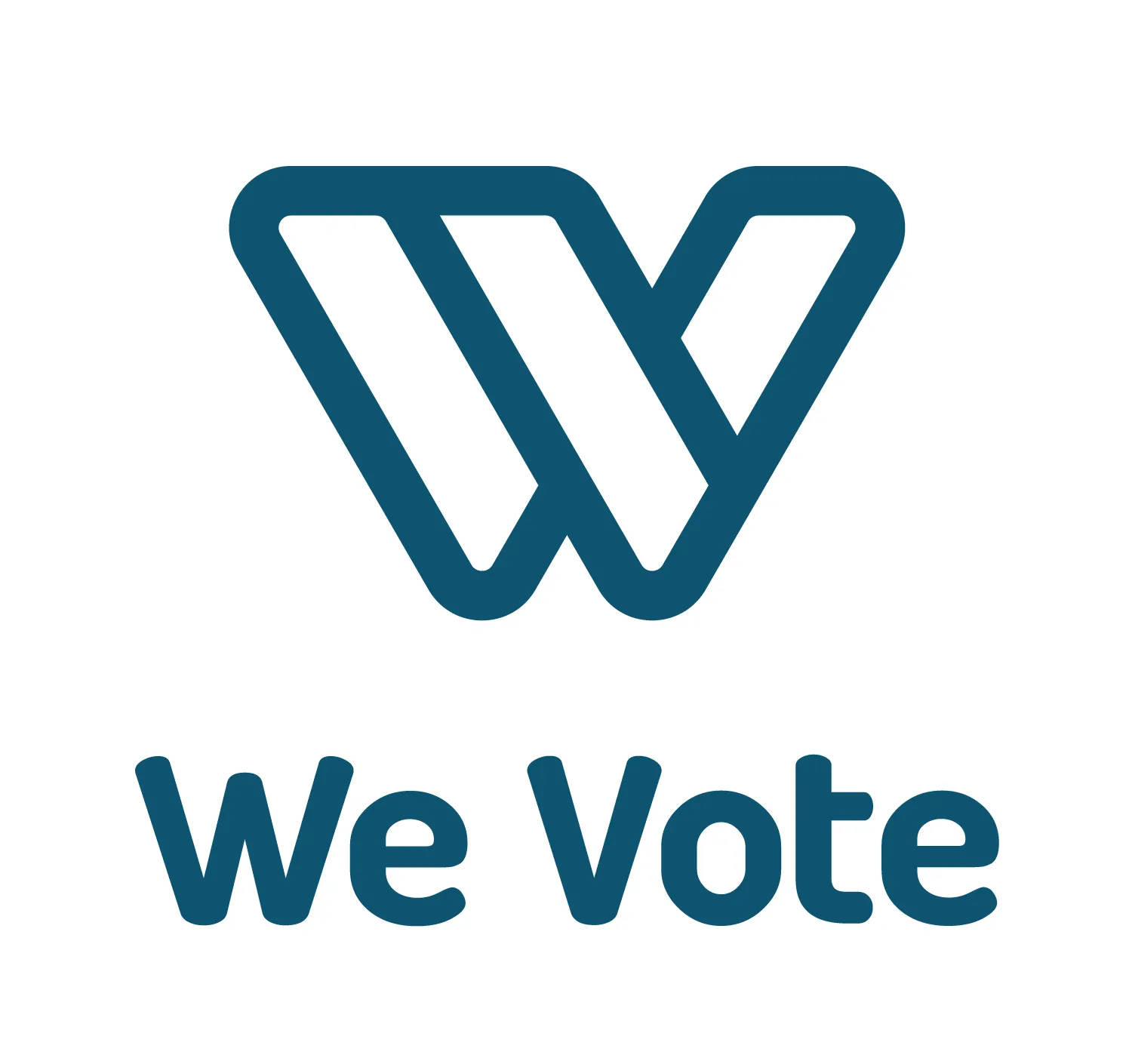Code for San Francisco Community Creates a Voter Guide to Help Fight Fake News.

We Vote is nonpartisan and nonprofit, founded and built by volunteers, including engineers from the Code for San Francisco Brigade of Code for America.
Check your ballot!
We Vote is a networked digital voter guide that empowers voters and improves democracy. Voters have a lot of decisions to make, and political campaigns don’t always tell the whole truth. With the proliferation of fake news and misinformation, it’s become even more difficult to figure out what sources to trust. We Vote cuts through the clutter to give you better information about what’s on your ballot. The platform aggregates endorsements and opinions across personal networks and helps you get information from trusted and verified advocacy organizations.
Elections matter, and each vote matters, but the U.S. still trails most developed countries in voter turnout. 80 million voting-age Americans are expected to sit out each presidential election. We Vote is building tools to empower voters to cast their vote. When more eligible voters cast a vote, we create a stronger democracy. It all starts with you, it all starts today. Together, we can get over 70% voter turnout.
In 2016, the Pew Research Center ranked the U.S. 31st out of 35 countries for voter turnout based on the voting age populace, among the mostly democratic nations that are a part of the Organization for Economic Cooperation and Development.
in 2012, 54% of Americans voted, about 129 million people out of a potential 241 million citizens, in the presidential election. In 2016, 61.4%, according to PEW Research, of Americans voted in the presidential election. We Vote wants to improve these statistics.
Voter registration is often harder in the U.S.. Tens of millions of Americans aren’t registered to vote because they missed a deadline, they didn’t know how or where to register, or because of registration errors. We Vote helps Americans register to vote by connecting them with quick and easy voter registration tools.
In 2008, the Census Bureau found around 4 million Americans fell into these various non-registered categories.
Elections matter, and each vote matters. Some elections have been decided by one vote.
“I was first recruited to run for the Senate when there was a vacancy on the ballot. My selection to be the party nominee was decided by a one vote margin,” says Ivey-Soto, D-New Mexico.
David Yancey (R-Virginia) and Shelly Simonds (D-Virginia) both ran against each other for a spot in the Virginia House of Delegates in December 2017. 11,608 votes were cast for each of them. The tie was broken by pulling the name of a candidate from a bowl.
Americans are overwhelmed by election marketing and misinformation. In the two party system, parties are incentivized to turn out base supporters they know will be reliable votes for their side instead of bringing in all eligible voters. This leads to a constant drum of political information. This also leads to deluge of ads and political marketing espousing incorrect facts and slander. We Vote is working to increase voter turnout in the U.S. by allowing voters to see what is on their ballot and to see who in their network supports the ballot items without excess fanfare.
64% of adults believe fake news stories cause a great deal of confusion.
It is always election season, somewhere in the U.S.. The U.S. holds more elections than most other developed nations. Though the president is elected for four years, all seats in the House of Representatives are up for election every two years, as are about a third of the seats in the Senate. Additionally, local elections take place throughout the four year presidential term.
2018, a midterm election year, will see 36+ elections at the state and local levels. This year, elections are held to elect all 435 seats of the House.
2019, an off-year election year will see 3 state elections and various local elections
2020, a Presidential election year, will see over 11+ gubernatorial elections as well as elections to fill 33 senate seats and all 425 seats in the House.
“We have elections three out of every four years in Louisiana,” said Alfred (Butch) Speer, clerk for the Louisiana House of Representatives. “We like to say that we elect more of our officials than any other state.”
It’s not just in the fall or in November either. Many cities hold elections for mayor and city council in the spring.
Presidential primaries kick off months before November. For example, New Hampshire now kicks off the presidential primary season in February.
Early voting and no-excuse absentee voting often starts early, several weeks ahead of Election Day.
https://qz.com/24186/58-countries-with-better-voter-turnout-than-the-united-states/
https://www.pewinternet.org/2017/10/19/the-future-of-truth-and-misinformation-online/
https://www.pewresearch.org/fact-tank/2016/08/02/u-s-voter-turnout-trails-most-developed-countries/
https://www.census.gov/prod/2010pubs/p20-562.pdf
https://www.vox.com/policy-and-politics/2016/11/7/13536198/election-day-americans-vote
https://qz.com/291933/why-the-us-is-the-only-country-in-the-world-to-have-elections-so-often/